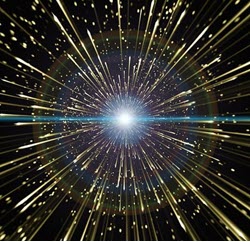In the dawn of movie history, there was much creativity and innovation happening in the world of cinema. Among the various groundbreaking films that have shaped the industry, one particular production that left a monumental impact on audiences worldwide was the 1954 Japanese science fiction kaiju film, Godzilla.
Directed by Ishirō Honda and produced by Toho Company Ltd., Godzilla roared its way onto screens, captivating audiences with its unique take on the monster genre. The film is renowned for its blend of atomic age fears and poignant social commentary, cleverly masked within the guise of a giant monster wreaking havoc on Tokyo.
At the core of Godzilla lies the aftermath of World War II and the trauma caused by the bombings of Hiroshima and Nagasaki. The monster itself symbolizes the destructive power of nuclear weapons and the devastation they can bring upon civilization. This underlying theme struck a chord with audiences, resonating especially strongly with Japanese viewers who had experienced the horrors of the war firsthand.
Godzilla was not merely a monster destroying buildings; it was a metaphor for the dangers of unchecked scientific progress and human arrogance. The film highlighted the consequences of tampering with forces beyond our control, serving as a stark warning against the perils of nuclear warfare and environmental destruction.
Beyond its thematic depth, Godzilla also introduced innovative special effects techniques that set new standards in the industry. Eiji Tsuburaya’s pioneering work in creating the iconic monster using suitmation, miniatures, and practical effects revolutionized the way creatures were portrayed on screen. The meticulous attention to detail and craftsmanship in bringing Godzilla to life were a testament to the dedication and skill of the filmmakers.
Moreover, Godzilla spawned a franchise that has endured for over six decades, becoming a cultural phenomenon that transcends borders and generations. The success of the original film led to numerous sequels, spin-offs, and reboots, solidifying Godzilla’s status as a pop culture icon beloved by millions around the world.
In conclusion, Godzilla stands as a testament to the power of cinema to tell compelling stories and tackle complex themes. Its lasting legacy as a groundbreaking film that blends entertainment with social commentary continues to resonate with audiences, cementing its place in cinematic history as a true classic that started with a big bang.
